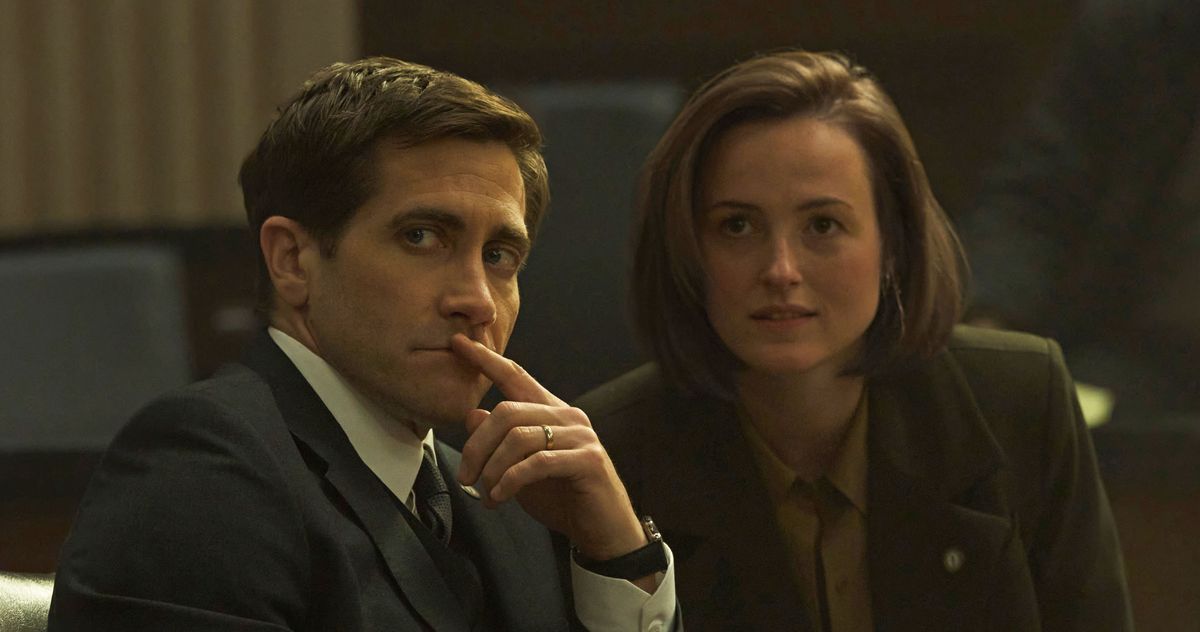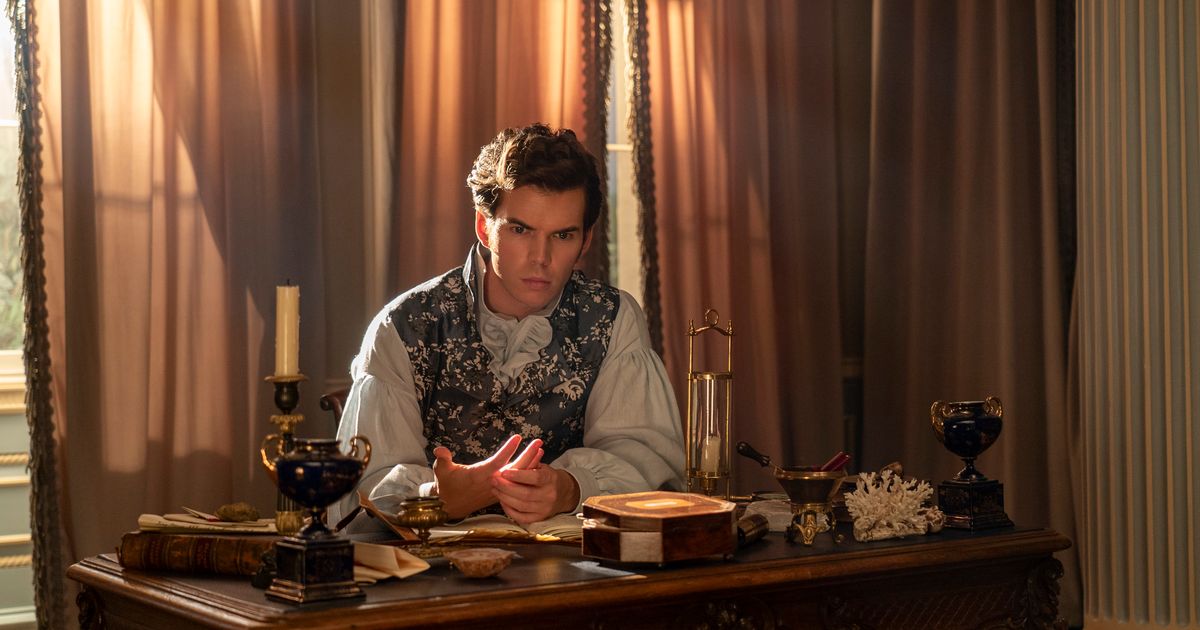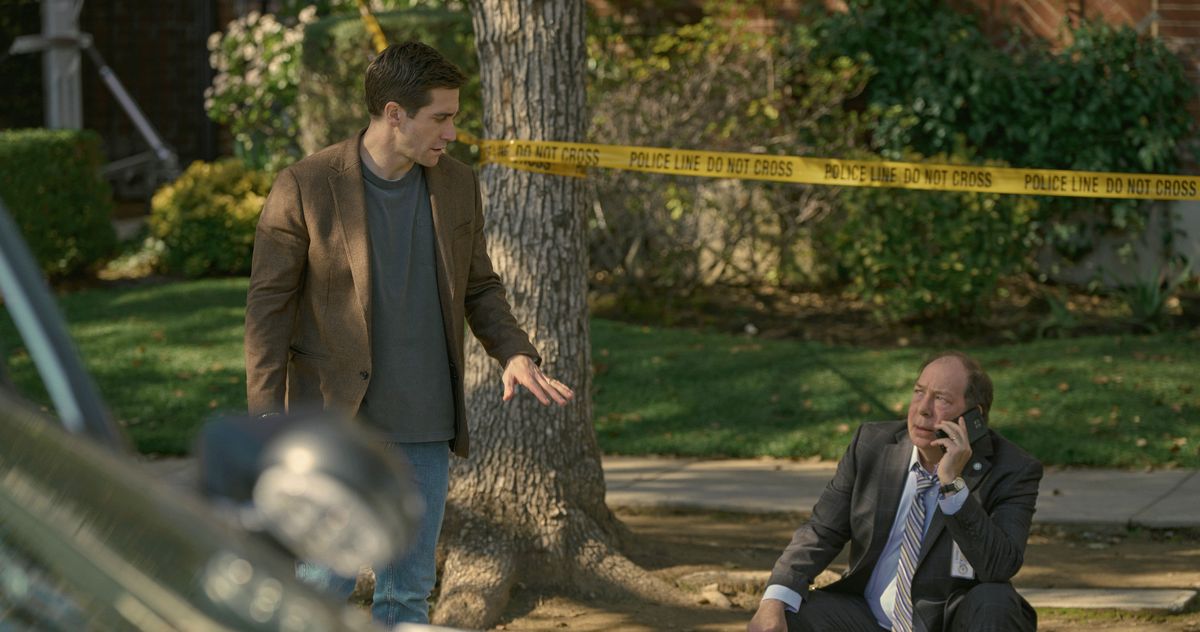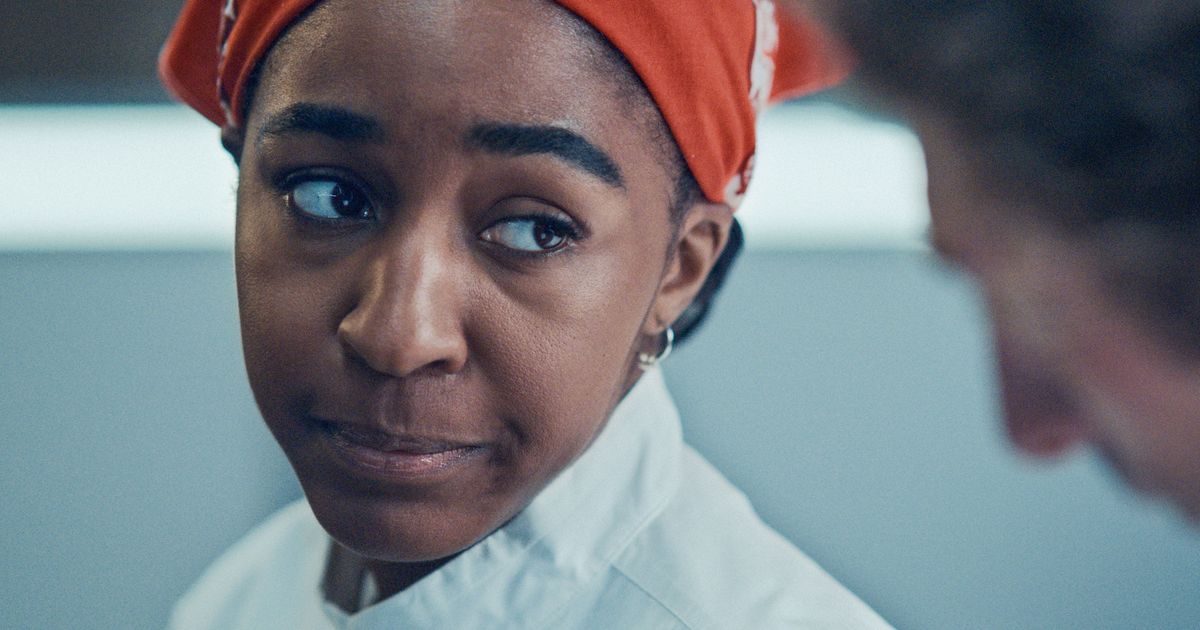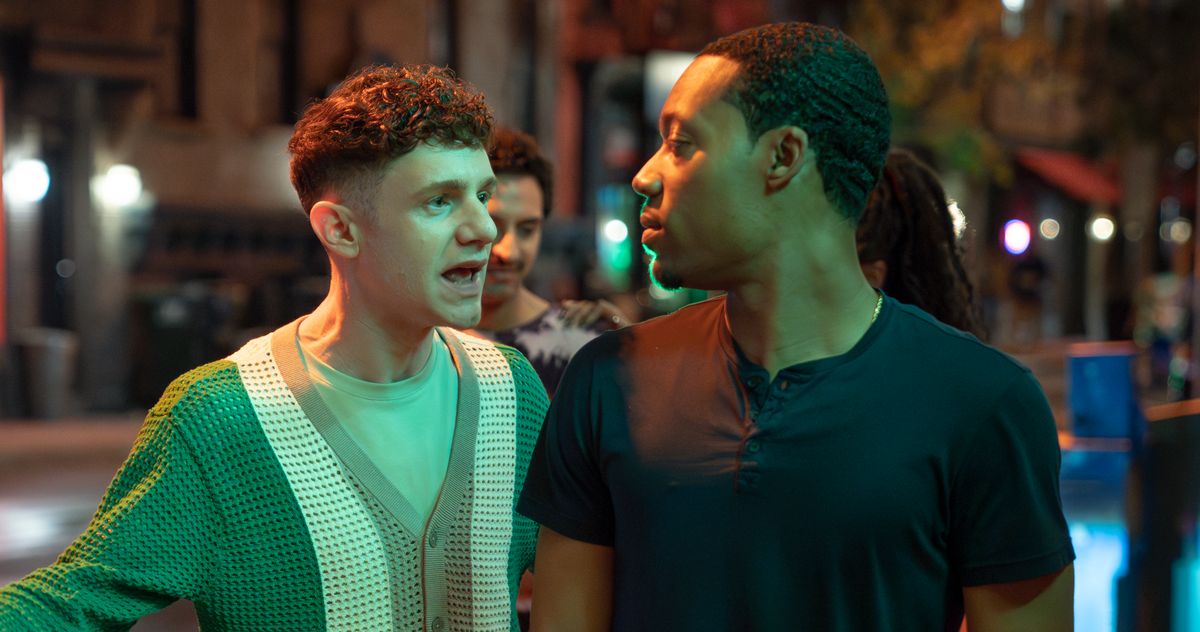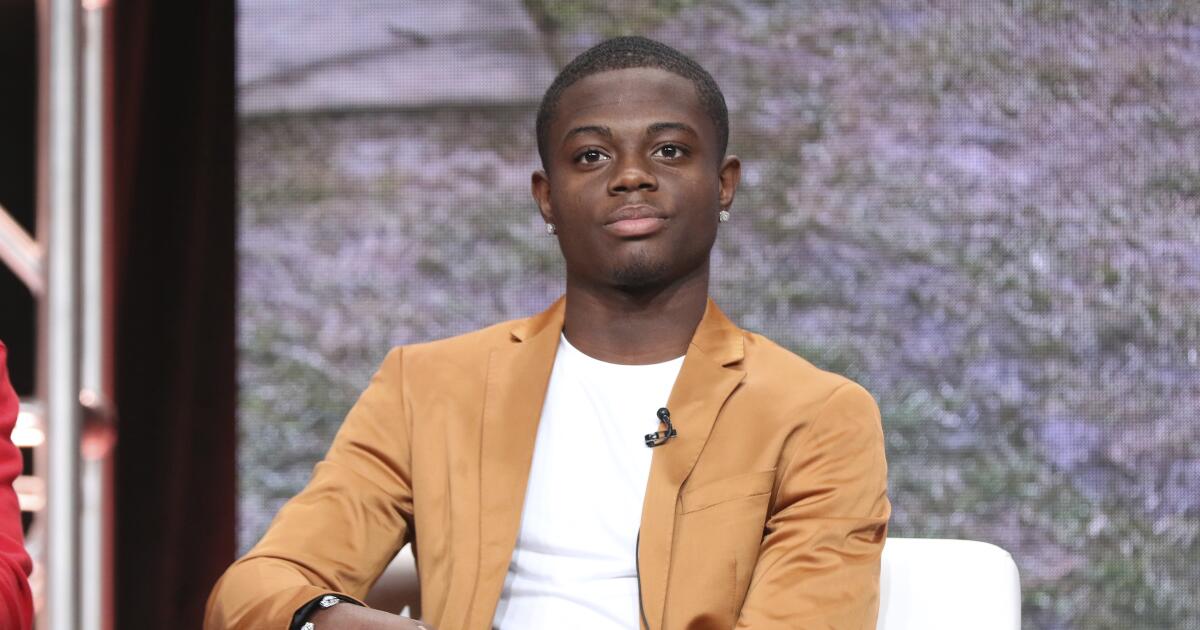Photo: Apple TV+
Rusty Sabich, former chief deputy prosecutor of Chicago, potential murderer, and tormented father and husband, has a lot of explaining to do. The first thing he needs to explain is why he didn’t tell Raymond, his former boss and best friend, about his affair with Carolyn, whose murder he had been investigating, an obvious conflict of interest. He is not off to a good start when he tries to justify himself by saying that Raymond “imposed” the investigation on him when I clearly remember — and can easily prove by moving my cursor — him telling Tommy Molto he had to have the investigation because he was simply a better lawyer.
Beyond that, Rusty is in the unfortunate position of having to explain to his wife, Barbara, that he is a suspect in Tommy’s investigation. This would already be hard on its own, but add to that the compounding facts that (1) Carolyn was pregnant, (2) potentially with his child, (3) Molto is going to have him do a paternity test, and, worst of all, (4) Barbara thought he had stopped seeing Carolyn a year ago. But Barbara isn’t the only pissed-off wife in this town. I gasped and pointed at the screen when I saw the great Elizabeth Marvel in a raincoat, in the role of Raymond’s wife, Lorraine, who finds it impossible to understand why her husband wouldn’t have caught on to the fact that Rusty was cheating on her friend Barbara. Between two angry wives and Rusty absconding to his office to look at some files, I am duly seated for this episode.
Rusty is tormented by endless memories of sex with Carolyn, but we still get to see her clothed as flashback images show her looking at the same reports on the Bunny Davis case that Rusty has taken out. The fact that we only ever get to see snippets of Carolyn in action — sexual or otherwise — works to keep her shrouded in the mystery her husband spoke about in the last episode as if she were impossible to pin down. I keep wishing for an extended flashback sequence that would show us Carolyn as a person rather than a memory — she seems compelling, complicated, and definitely not the person Rusty thought she was. Reviewing the Davis case, he finds out that there was a second, unidentified sperm sample that wasn’t part of the evidence the prosecution handed over to the defense, which means, basically, that the prosecuting team concealed evidence that could have potentially exculpated Reynolds. When Rusty confronts Dr. Kumagai about it, he finds out that Carolyn chose not to reveal this information deliberately. It’s all too much for Rusty, and being in the presence of Dr. Kumagai’s awful vibe isn’t helping, either. He literally jumps at Dr. Kumagai’s neck.
Even though I hate him, it’s pretty funny when Tommy mimics the attack for Della Guardia. I’m hoping we get more insight into Tommy, too. Who hurt that man? Why is he so bothered? Even Della Guardia, that slimy know-it-all, seems like a bastion of integrity in comparison. He has to remind Tommy to “follow the facts” and “let the evidence,” rather than his “fucking feelings,” be the investigation’s guide.
When Rusty gets home from jumping Kumagai and being ignored by Rigo, Barbara — who looked through the pictures of Carolyn’s corpse — has set up a trap for him at the dinner table, telling their kids: “Your father has something he wants to tell you.” She’s right that they should know from him, rather than the news or kids at school, that he is a suspect in the murder investigation of his mistress, but it’s pretty brutal the way she does it. “I will not be alone with this time,” she says after the kids have wordlessly and tearfully left the table for their rooms. I like this side of Barbara — it’s kind of selfish and cold. This is a step toward upending the dichotomy between Barbara, the noble mother, and Carolyn, the neglectful one: it’s a tiny drop of antidote to Fatal-Attraction-Itis. We’ve been given clues that Barbara will endure any pain to keep her family together, but that doesn’t mean she will do it in silence. For the first time, we see Rusty isolated from the family unit. He cries alone on the staircase while Barbara consoles their children, and feeling alienated reminds him of when Carolyn broke up with him and they had break-up sex on the floor of his office.
In the crack of dawn, under the bluest light you have ever seen in your life, while Kyle angrily throws a baseball, the police arrive to search the house and take Rusty’s paternity test. Rusty is furious that they came to his house so early in the morning and in front of his family, but Tommy reminds him that serving warrants at dawn was his own preference. In my last recap, I mentioned that protagonist lawyers in legal thrillers tend to either be disappointed by or have their faith restored in the judicial system, depending on how young they are. In Presumed Innocent, all of the lawyers are old and experienced enough to know that justice can be manipulated, and they all act accordingly. What seems to surprise Rusty is that the same tactics he might have used to manipulate the truth, to hold it in his hand not as a fixed object but as a tool, can be turned against him, too. It completely baffles him that the tables can turn so easily.
Another thing that’s turning on Rusty is the judgment of his therapist, who keeps calling him a liar and generally acting less like a therapist and more like Barbara’s best friend. It’s at the therapist’s office that Rusty admits that he was “basically stalking” Carolyn and that there is no chance he won’t get arrested when Molto reads the texts he’d been sending her. It’s true that Rusty is a liar and a cheater, and there’s little reason we should ever take him at his word, but you can see how a person would go crazy being attacked from all sides. Jake Gyllenhaal is playing him expertly. Harrison Ford had a much cooler, nothing-fazes-me demeanor, and the narrator of Turrow’s book retains a professional detachment from emotion, releasing it only every now and again with precise control. Gyllenhaal’s Rusty, on the other hand, is convincingly desperate and, therefore, human. His emotions are running high, close to the surface.
His distress is palpable when he turns up at Raymond’s door to ask him to be his defense attorney. It’s palpable when Rigo shows her disappointment in him, and when he goes back to see Reynolds, promising him things about his sentence even though he barely has a job. Even Reynolds recognizes it. You can’t help but feel for this guy. His life is truly falling apart.
Rigo and Raymond both give Rusty a tough-love act, but they ultimately stick by him. I don’t doubt that, like Rigo, Raymond has done this out of genuine loyalty and love for Rusty, but his political interests are also on the line. As he reminds Lorraine, successfully defending Rusty could help him save his legacy: “If I could avenge those two tiny little suck fucks, that would be meaningful. And it’s not a crime for me to want to wake up every morning to a life that has meaning.” The first part is great — I particularly love the innovation of the insult — but the second part is definitely the wrong thing to say to a wife who was looking forward to retiring, hanging out, and relaxing together in Florida.
It’s not two seconds after Rigo calls to give Rusty the news that he was, in fact, the father of Carolyn’s unborn baby that the police arrive at the house to arrest him. Raymond and his family are at the arraignment. Though this is a low point for Rusty, whose stuff keeps coming up, it’s a bit of a relief to see that those closest to him are not leaving his side, no matter how angry they might be. Raymond requests to go straight to trial, and we’re introduced to Judge Lyttle, whom I love immediately. She is not having any of Molto and Della Guardia and orders them to focus on justice “without any extra pomp.” The trial date is set and Rusty goes home on bail, but not before Raymond has dropped some more F-bombs at Tweedledumb and Tweedledumber, as he called them earlier.
At home, Rusty has been let back into the family unit, having dinner with his wife and kids in front of the TV. But the writers wouldn’t leave us hanging on such an optimistic note. Both episodes of Presumed Innocent have ended on a cliffhanger, and I think we can expect every episode in the season to follow this model. In this case, we’ll be left pulling hairs out of our skulls for the rest of the week, thinking why, what, and who could have texted Rusty an ominous message that read: “YOU WERE THERE. I SAW YOU.”
• Seeing Jake Gyllenhaal be extremely stressed out in an office environment reminds me I’m due for a rewatch of Zodiac, another film in which he plays a man with a brittle sensibility and progressively looser ties.
• Another fun fact about Bill Camp: Elizabeth Marvel is his IRL wife, which goes some way toward explaining the great chemistry they have onscreen. This 2021 write-up of the couple is a great way to satisfy a craving for more of their energy as we wait out next week’s episode.
• We get a few more pool shots in this episode, though those bits still feel thrown in to me. Rusty has a dream of drowning Carolyn in this episode, which really doesn’t bode well for him.
• Why do so many characters in this show have a name that starts with R? We have Rusty, Rigo, Raymond, Reynolds … As a fellow R-initial, I think we could do with a little variety here.




